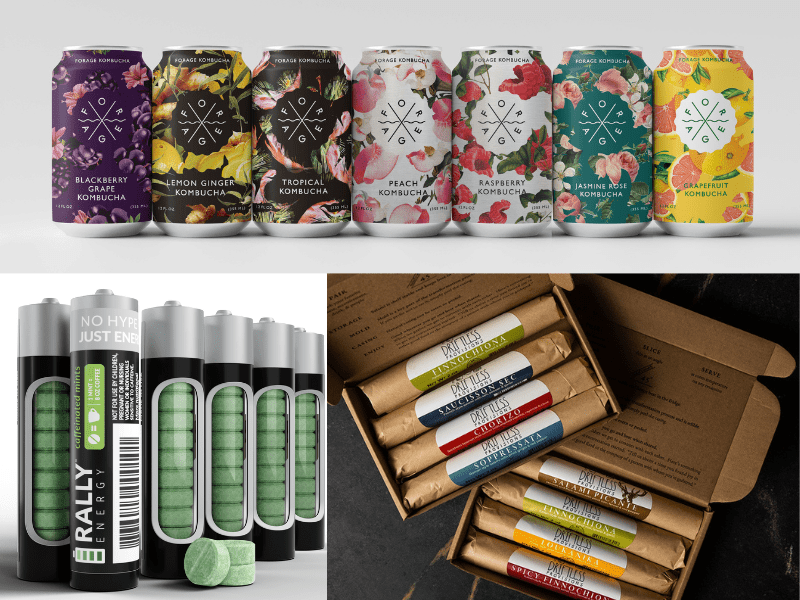Food and farm entrepreneurs are in the business of making money, yet ironically, one of the best ways to do that is to give stuff away for free. We’re not talking about product samples here, although they can be valuable marketing tools too. Rather, brand-generated content that educates, entertains, inspires or otherwise engages consumers—and that they don’t have to pay for—can pay off in dividends for a food business long-term.
Because consumers have such an intimate connection with food, they’re hungry for information about it. They care where food comes from, how it’s produced, what nutritional properties it has, how they can incorporate it into their diet and even how they can make it themselves. Therefore, they eat up recipes, how-to videos, blog posts, travelogues and anything else that enhances their interest or enriches their knowledge base.
When food brands create and share these assets, it does a lot more than just make consumers happy. It helps the business in numerous ways, including by growing brand awareness, developing a rapt and recurring audience, and establishing the company as a thought leader or subject-matter expert. Consistent content generation also improves SEO and boosts the brand’s ranking in Google searches, ultimately breeding more exposure.
Free content also has a direct impact on sales. Market research shows consumers are 131% more likely to buy from a brand immediately after they consume educational content from that company. The effect sticks with shoppers too. One whole week after engaging with content, they are still 48% more apt to buy from that brand.
But beyond purchasing power, research also shows that educational content increases trust in brands—and that trust actually grows stronger over time. So, even if a shopper doesn’t buy immediately or even a week after consuming brand-issued materials, the brand’s credibility will likely keep them coming back for more content, eventually prompting them to purchase.
All these awesome benefits aside, one of the most powerful perks of free content is its ability to cultivate community—something most people are starving for in the coronavirus era. When they feel like they’ve connected with likeminded folks and developed a relationship that runs much deeper than transactional, they’ll stick with a food brand for the long haul.
Breadtopia, which built its entire e-commerce business upon offering free content, has experienced this first-hand. The company’s main goal from day one was to provide free baking education and create a community of baking enthusiasts, which it funded through online sales of sourdough starters, grains and hand-milled flours. In fact, as Breadtopia’s Galen Saturley shared in the latest Edible-Alpha® podcast, sometimes those passionate community members/customers would drive cross-country to tiny Fairfield, Iowa, just to see home base!
Sure enough, as the Breadtopia community grew, so did sales, and the company kept scaling up. When COVID-19 hit, sales spiked some 400%—and now the company has enough funds to transform its facility into a destination spot. This success story all started with developing engaging content and giving it away for free.


The COVID-19 pandemic prompted a 400% sales increase for Breadtopia, but the company laid a whole lotta groundwork over 14 years to reap these rewards. Started as an online education hub for baking enthusiasts, Breadtopia grew its e-commerce business steadily, requiring larger and larger facilities and building an engaged community along the way. Catch Tera’s conversation with the founders’ son Galen Saturely to learn how this company expanded and evolved over the years to get to its current sweet spot.
Listen to the Latest Episode | Watch the Interview On YouTube!
And now, our roundup of the best food and beverage finance news, events and resources from around the web…
Business Model Insights
- Don’t just use stats—build a story around them (New Hope Network)
Food entrepreneurs use statistics in pitch decks, retailer presentations and go-to-market narratives, but many are overlooking more impactful ways to leverage their data. - What every food entrepreneur should know before scaling (New Hope Network)
- Selling DTC online doesn’t mean flying solo (FoodNavigator-USA)
Raising Capital
- Small business rescue slowed by fight against fraud, drawing protests (Politico)
Tens of thousands of small businesses have faced delays in receiving emergency payroll support loans that Congress authorized in December, sparking an uproar that has forced the agency responsible for distributing the funds to quickly find a solution. - Investing in a Better Future of Snacking (Food Tank)
- U.S. Farmers and Ranchers in Action Mobilizes Tech and Finance Sectors to Fulfill Agriculture’s Potential as a Climate Solution (Regenerative Food Systems Investment Forum)
CPG/National Brands
- Synthetic biology test could force the natural products industry to define its position (New Hope Network)
Food ingredients produced through synthetic biology can so closely mirror natural ingredients that they’d been difficult to detect. Not anymore, forcing natural brands to decide whether or not they accept these ingredients. - Sargento lawsuits shine a light on ‘no antibiotics’ claims on food labels (FoodNavigator-USA)
- What Natural Products Expo West and Expo East will look like in 2021 (New Hope Network)

Market Trends
- COVID-19 vaccinations to have limited effect on shopping behavior, says survey (New Hope Network)
Expect no slowdown for e-commerce: New survey shows fewer than half of people already immunized feel more comfortable grocery shopping in-store. Only 18% of those vaccinated and 15% of those planning to get a vaccine say they’ll shop in stores more frequently. - Consumer concerns about COVID-19 put focus on better-for-you products (Food Dive)
- Allergen-free foods an opportunity for the food industry (The Food Institute)

Farming and AgTech
- Rodale Enlists Cargill in Unlikely Alliance to Increase Organic Farmland (Civil Eats)
Together with poultry company Bell & Evans, the duo is launching the U.S. Organic Grain Initiative, designed to transition 50,000 acres of corn and soy to organic and help fill a growing gap in domestic organic animal feed. - Why healthy food and its local production should be part of the COVID-19 response (The Conversation)
- What Biden’s climate plan means for regenerative ag (Rodale Institute Blog)
Deals/M&A
- GrubMarket Raises $90M to Make Its Food Delivery Service Available Nationwide (The Spoon)
Along with offering a virtual food marketplace to connect consumers with farmers, GrubMarket also sells wholesale goods to grocers, restaurants and corporate offices and offers software to help food companies manage their businesses. - Hain Celestial open to acquisitions in plant-based, immunity-boosting, stress-reducing & snack categories (FoodNavigator-USA)
- Sustainable E-Grocer Imperfect Foods Increases Series D Round to $110M (The Spoon)

Virtual Events
- MOSES Organic Farming Conference: 2/22–2/27 | FFI to host MOSES Roundtable: How to Get Your Farm Business Ready to Raise Money: 2/24
- UNFI Natural & Conventional Spring & Summer Show: 2/23–2/25
- FFI MVP Series: Operations & Organization Planning Workshop: 2/24
- ESG Best Practices for the Food Industry: 2/25
- Edible-Alpha® Consultant Huddle: 3/1
- Raising Equity: 3/2–2/4
- Natural Products Expo Virtual Spark Brand Success: 3/2–3/4
- Seafood Expo North America Reconnect: 3/14–3/18
- FFI Scaler Series: Sources & Uses of Capital Finance Planning Workshop: 3/18
- American Bakers Association 2021 Virtual Convention: 3/22
- Global Food Safety Initiative Conference: 3/23–3/25
- Findaway Adventures–Netrush Liftoff Pitch Slam: 3/24
- American Food Sure Virtual Summit: 3/29–3/30





